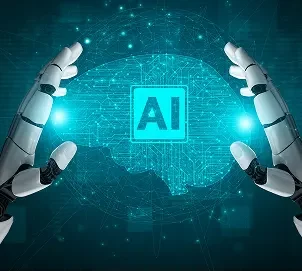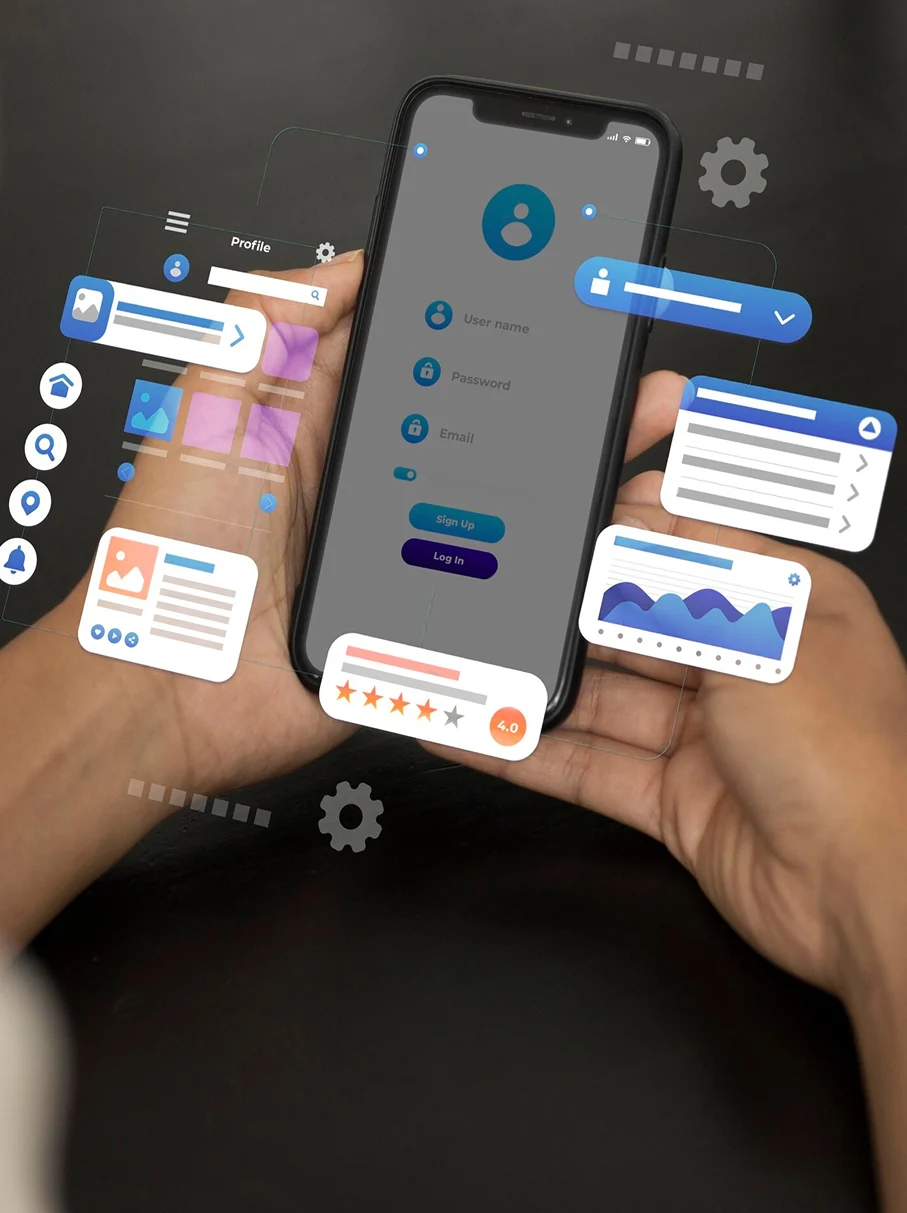Voice recognition apps have been gaining popularity over the past decade, with advancements in technology making them more accurate and user-friendly. These applications leverage sophisticated artificial intelligence (AI) algorithms to understand spoken words and convert them into text, enabling users to interact with their devices hands-free. This technology not only simplifies tasks but also enhances accessibility for individuals with disabilities or those who prefer voice commands over traditional text input.
As we enter 2026, voice recognition technology has become an integral part of our daily lives. From virtual assistants like Siri and Alexa that help manage our schedules and control smart home devices to dictation software for professionals that increases productivity by transcribing spoken words into written documents, there is a wide range of voice recognition apps available on various platforms. These apps are continually evolving, with new features and improvements being introduced regularly to enhance user experience and expand their capabilities.
In this article, we will take a comprehensive look at the top 20 voice recognition apps that are expected to dominate the market in 2026. We will explore their key features, performance, and how they stand out from the competition. Whether you are looking for a virtual assistant to make your daily tasks easier or a robust dictation tool for your professional needs, this guide will help you find the best voice recognition app for your requirements.
Why should you use a Voice Recognition App?
There are many benefits to using a voice recognition app. For starters, it allows for hands-free operation, making it more convenient and efficient for users. With voice commands, you can perform various tasks without having to physically interact with your device, such as sending messages, making calls, and setting reminders.
Moreover, voice recognition technology is continuously improving in terms of accuracy and speed. This means that these apps can accurately understand and transcribe spoken words into text at a faster rate than ever before. This makes them an excellent tool for individuals who struggle with traditional text input or those looking to increase their productivity by dictating instead of typing.
Voice recognition apps also offer a level of accessibility for individuals with disabilities that may have difficulty using traditional input methods. These apps allow them to interact with their devices and perform tasks that may have been difficult or impossible before, giving them greater independence and autonomy.
Best Voice Recognition Apps for Android
1. Speechnotes
Speechnotes is a popular voice recognition app for Android devices. It offers a simple and straightforward interface, making it easy to use for beginners. The app also supports over 60 languages and allows for punctuation commands, making it suitable for dictation needs in various languages.
One of the standout features of Speechnotes is its ability to save your transcriptions offline, which can be synced when you have an internet connection. This makes it a reliable option even when you are on the go and may not have access to the internet.
Benefits:
- Simple and easy-to-use interface, suitable for beginners.
- Supports over 60 languages, catering to a wide user base.
- Allows for punctuation commands, enhancing dictation accuracy.
- Saves transcriptions offline, ensuring reliability without internet access.
- Syncs transcriptions when an internet connection becomes available.
Drawbacks:
- Limited advanced features compared to some competitors.
- Ads in the free version may be distracting for users.
- Customization options are relatively basic.
2. VoiceNote II
VoiceNote II is another highly-rated voice recognition app for Android devices. It offers real-time speech-to-text transcription, making it an ideal option for taking notes in meetings or lectures. The app also has a simple and intuitive interface, allowing for easy navigation and use.
One of the standout features of VoiceNote II is its customizable hotkeys, which allow users to assign shortcuts for frequently used commands. This can greatly improve efficiency and speed when using the app.
Benefits:
- Real-time speech-to-text transcription, suitable for note-taking in meetings or lectures.
- Simple and intuitive interface, ideal for quick usage.
- Customizable hotkeys for frequently used commands, improving efficiency.
Drawbacks:
- Limited language options, only supporting English and Spanish.
- No option for offline transcription or syncing with an internet connection.
- Ads in the free version may be distracting for users.
3. Speech Texter
Speech Texter is a popular voice recognition app for both Android and iOS devices. It boasts a high accuracy rate and supports over 30 languages, making it a great option for a diverse user base.
One of the standout features of Speech Texter is its ability to save transcriptions as documents in various formats, such as TXT or PDF. This makes it convenient for users who need to easily share or store their transcriptions.
Benefits:
- High accuracy rate, catering to different accents and dialects in over 30 languages.
- Saves transcriptions as documents in various formats, allowing for easy sharing and storage.
- No internet connection is required for transcription.
Drawbacks:
- Limited offline editing options, as the app primarily focuses on real-time transcription.
- Navigation and commands can be tricky to learn initially.
- The free version has limitations on the length of transcriptions.
4. Voice Notebook
Voice Notebook is a speech-to-text app with a simple interface and robust features. It offers accurate transcription in multiple languages, including English, French, German, Spanish, and Italian.
One of the unique features of Voice Notebook is its ability to transcribe punctuation marks and formatting commands, making it suitable for dictating essays or articles on the go. It also allows for easy editing and sharing of transcriptions.
Benefits:
- Accurate transcription in multiple languages.
- Ability to transcribe punctuation marks and formatting commands.
- Simple and user-friendly interface.
Drawbacks:
- Limited language options compared to other apps.
- The transcription speed may be affected by background noise.
- The free version has limitations on the length of transcriptions.
5. Transcribe
Transcribe is a popular speech-to-text app designed for transcribing interviews, lectures, and other long-form recordings. It offers customizable playback options, allowing users to adjust the speed of audio playback.
One unique feature of Transcribe is its ability to recognize multiple speakers in a recording and label them accordingly. This makes it ideal for transcriptionists or journalists who need to accurately transcribe conversations between multiple people.
Benefits:
- Customizable playback options for more accurate transcription.
- Ability to identify and label multiple speakers in a recording.
- Offers both web-based and desktop versions for flexible usage.
Drawbacks:
- Limited language options compared to other apps.
- Expensive subscription plans for full access to features.
- Some users may find the interface and controls confusing.
6. Google Assistant
Google Assistant, available on both Android and iOS devices, is a versatile virtual assistant that offers speech-to-text capabilities. Users can simply speak their commands or dictations and Google Assistant will transcribe them in real-time.
One of the main benefits of using Google Assistant for transcription is its integration with other Google products such as Docs and Gmail. This allows for easy transfer and sharing of transcriptions across different platforms.
Benefits:
- Built-in speech-to-text feature is accessible through voice commands.
- Integration with other Google products for seamless transfer and sharing of transcriptions.
- Available on both Android and iOS devices.
Drawbacks:
- May not be as accurate as dedicated transcription apps.
- Limited customization options for playback and formatting of transcriptions.
- Requires an active internet connection for real-time transcription.
7. Speech to Text by IBM Watson
IBM Watson’s Speech to Text service is a cloud-based API that offers highly accurate speech-to-text transcription. It can be accessed through various devices and platforms, including web browsers, mobile apps, and even robotic systems.
Benefits:
- Highly accurate transcription results due to advanced AI and machine learning technology.
- Multi-language support for transcribing conversations in different languages.
- Customizable options for formatting and organizing transcripts.
Drawbacks:
- Subscription plans can be expensive for individual users or small businesses.
- Requires some technical knowledge to integrate into applications or systems.
- May not be suitable for novice users due to its advanced features and customization options.
8. Dragon Anywhere
Dragon Anywhere is a speech recognition app developed by Nuance Communications, known for its highly accurate and fast transcription capabilities. It is available on both iOS and Android devices, with a subscription-based pricing model.
Benefits:
- Advanced voice commands for editing and formatting text during transcription.
- Supports various industry-specific terminology and vocabulary for more accurate transcriptions.
- Can be used offline, making it a useful tool for transcribing in remote or no-internet areas.
Drawbacks:
- Limited customization options compared to other dedicated transcription apps.
- Only available for mobile devices, not suitable for desktop use.
- Subscription plans can be costly for individual users or small businesses.
9. Braina Pro
Braina Pro is a speech recognition software developed by Brainasoft, designed primarily for personal and professional use. It boasts advanced AI technology that allows it to transcribe conversations with high accuracy.
Benefits:
- Supports multiple languages and dialects, making it suitable for international users.
- Advanced voice commands for controlling various applications and tasks on the computer.
- Option to create custom voice commands for specific actions or workflows.
Drawbacks:
- Requires installation on a desktop or laptop, and cannot be accessed through web browsers or mobile apps.
- Limited customization options compared to other dedicated transcription tools.
- Only available on Windows operating systems, not compatible with macOS or Linux.
10. ListNote Speech to Text Notes
ListNote is a mobile transcription app developed by Khymaera, designed for Android devices. It offers basic speech-to-text functionality with the ability to organize and categorize notes.
Benefits:
- Simple interface and is easy to use for quick note-taking on the go.
- Option to export transcribed text as a text file or share it through various applications.
- Can be used offline, making it useful for transcribing in remote or no-internet areas.
Drawbacks:
- Limited customization options compared to other dedicated transcription apps.
- Only available for Android devices, not suitable for Apple users.
- The free version includes ads but can be removed with a paid upgrade.
Best Voice Recognition Apps for iPhone
11. Voice Texting Pro
Voice Texting Pro is an iOS app that offers voice-to-text capabilities for messaging and email. It also includes a built-in voice command feature for hands-free control of the device.
Benefits:
- Supports multiple languages and dialects, making it suitable for international users.
- Easy-to-use interface with simple voice commands for sending messages or emails.
- Option to edit the transcribed text before sending.
Drawbacks:
- Limited customization options compared to other dedicated transcription apps.
- Requires in-app purchases to access all features.
12. iTranslate Converse
iTranslate Converse is a translation and transcription app available for both iOS and Android devices. It offers real-time speech-to-text capabilities with the added feature of translating conversations in different languages.
Benefits:
- Transcribes in multiple languages, making it useful for international users or language learners.
- User-friendly interface with simple tap-and-hold voice recognition.
- Option to save transcribed text as notes or send it through messaging apps.
Drawbacks:
- Limited customization options compared to other dedicated transcription apps.
- Requires in-app purchases to access all features.
13. Just Press Record
Just Press Record is a voice recording app with built-in transcription capabilities for iOS devices. It offers a simple and fast way to record audio and have it transcribed in real-time.
Benefits:
- Transcribes in multiple languages, making it useful for international users or language learners.
- Option to organize recordings by date, time, or location.
- Ability to share transcriptions directly through messaging apps or save them as notes.
Drawbacks:
- Limited customization options compared to other dedicated transcription apps.
- Requires in-app purchases to access all features.
14. Otter Voice Meeting Notes
Otter is a transcription app specifically designed for transcribing meetings and interviews. It offers real-time transcription with the ability to highlight key points and add comments during the recording.
Benefits:
- Designed specifically for transcribing meetings, making it useful for professionals or students taking notes during lectures.
- Option to sync transcripts across devices and access them online.
- Ability to share recordings and transcripts directly through messaging apps or save them as notes.
Drawbacks:
- Limited customization options compared to other dedicated transcription apps.
- Requires in-app purchases to access all features.
15. Rev Voice Recorder and Transcription
Rev is a transcription app that offers both voice recording and transcription services. Users can record audio or upload existing recordings for accurate transcriptions.
Benefits:
- Provides high-quality, human-generated transcriptions compared to automated transcription apps.
- Option to integrate with other apps, such as Dropbox or Evernote.
- Ability to request timestamps for specific points in the recording.
Drawbacks:
- More expensive than other transcription apps, as it charges per minute of audio transcribed.
- Limited customization options compared to other dedicated transcription apps.
16. Evernote
Evernote is a popular note-taking app that also offers recording and transcription features. Users can record audio directly within the app and have it transcribed into text.
Benefits:
- Ability to add images, links, and other media to notes along with the transcription.
- Option to organize notes into notebooks and tag them for easy organization.
- Ability to access notes across devices and share them with others for collaborative note-taking.
Drawbacks:
- Transcription may not always be accurate, as it relies on automated speech recognition technology.
- Limited storage for free users, requiring a paid subscription for more storage space.
17. Dictate App
Dictate App is a voice recognition app that allows users to dictate and transcribe their speech into text. It also offers translation services for over 40 languages.
Benefits:
- Simple and user-friendly interface.
- Option to export transcriptions as text or audio files.
- Ability to customize punctuation commands for more accurate transcriptions.
Drawbacks:
- Limited editing options once the transcription is complete.
- May struggle with accents or non-native speakers’ speech.
18. Dictate2us Record & Transcribe
Dictate2us Record & Transcribe is a professional transcription service that offers high-quality transcriptions with quick turnaround times. Users can record their audio and have it transcribed by certified professionals.
Benefits:
- Accurate and reliable transcriptions, as they are done by human transcribers.
- Option to request specific formatting for the transcription (e.g., bullet points, lists).
- Ability to integrate with other apps, such as Dropbox or Google Drive.
Drawbacks:
- Requires an internet connection to upload recordings and receive transcripts.
- More expensive than other transcription apps.
19. Siri
Siri is a virtual assistant developed by Apple, available on all Apple devices. It can perform various tasks, including voice dictation and transcription.
Benefits:
- Integrated into most Apple devices, making it easily accessible for users.
- Can be used hands-free with the “Hey Siri” command.
- Continuously improving speech recognition technology with frequent updates.
Drawbacks:
- Limited to Apple devices, not available for Android or other operating systems.
- May struggle with understanding accents or non-native speakers’ speech.
20. Temi Record and Transcribe App
Temi Record and Transcribe App is a transcription app that uses AI technology to transcribe audio recordings. It offers quick turnaround times and editable transcripts.
Benefits:
- A fast and affordable option for transcriptions.
- Easy-to-use interface for recording and editing transcripts.
- Option to add timestamps for easier navigation through the audio.
Drawbacks:
- Limited editing options once the transcription is complete.
- May struggle with accents or non-native speakers’ speech. Overall, there are many different options available for transcribing audio files, whether it be through manual transcription services or using AI technology. Each option has its benefits and drawbacks, and it ultimately depends on the specific needs and preferences of the user.
How to build a Voice Recognition App?
Basic Steps and Considerations in Building a Voice Recognition App:
- Define the Purpose and Target Audience: Before starting to build a voice recognition app, it is important to clearly define its purpose and target audience. This will help determine the features and functionalities that need to be included in the app.
- Choose a Suitable Platform: There are various platforms available for building voice recognition apps such as iOS, Android, or web-based applications. Consider which platform would be most suitable for your target audience and what resources are available to you for development.
- Select a Speech Recognition API: The speech recognition technology used in the app plays a crucial role in its accuracy and performance. Research and compare different speech recognition APIs to find the best fit for your app.
- Design an Easy-to-Use Interface: A user-friendly interface is essential for any successful app, especially a voice recognition app. Make sure the design is intuitive and easy to navigate, with clear instructions for users.
- Integrate Voice Commands: The main purpose of a voice recognition app is to respond to voice commands. Determine what types of commands will be necessary for your app and integrate them into the design.
- Consider Data Privacy and Security: When dealing with sensitive information such as audio recordings, it is important to prioritize data privacy and security. Make sure to follow best practices and comply with relevant regulations.
The Crux of User Experience and Uncluttered Design
User experience (UX) is a critical aspect of any app, and this holds for voice recognition apps as well. The design should be uncluttered, visually appealing, and easy to use. This includes considering the font size, color contrast, and spacing between elements on the screen.
In addition to the visual design, the overall user experience can also be enhanced by providing clear instructions and feedback to users. For example, in a voice recognition app, users need to know when they should speak and how their commands are interpreted. Providing audio or visual cues can greatly improve the user experience.
Technology and Tools Required
Developing a voice recognition app requires the use of various technologies and tools. Some key components include:
- Speech Recognition APIs: As mentioned earlier, utilizing an existing speech recognition API can greatly simplify the development process. Popular options include Google Cloud Speech-to-Text, Microsoft Azure Speech Services, and Amazon Transcribe.
- Programming Languages: Most voice recognition apps are developed using programming languages such as Java, Swift, or Python.
- Audio Processing Libraries: Audio processing libraries like TensorFlow or Kaldi can help with tasks such as noise reduction and feature extraction from audio recordings.
- Backend Infrastructure: A reliable backend infrastructure is crucial for storing and processing user data. This can include databases, servers, and cloud storage services.
- User Interface Design Tools: Tools like Adobe XD, Figma, or Sketch can be used to design the user interface of the app.
Speech Recognition and Processing: The Core of Voice Recognition Apps
At the heart of a voice recognition app is, of course, its ability to accurately recognize and process spoken words. This involves various steps, including:
- Audio Recording: The first step in speech recognition is capturing the audio input from the user. This can be done using a device’s built-in microphone or by connecting an external microphone.
- Pre-processing: Before the audio data can be fed into a speech recognition API, it often needs to be pre-processed. This involves tasks such as noise reduction, filtering out irrelevant sounds, and adjusting the volume.
- Feature Extraction: Once the audio has been pre-processed, it goes through feature extraction, which involves identifying key elements such as pitch, frequency, and duration of individual sounds.
- Speech Recognition: This is where the magic happens – using machine learning algorithms and natural language processing techniques, the app attempts to match the extracted features with known words and phrases in its database.
- Post-processing: The results of speech recognition are not always 100% accurate, so post-processing is done to correct any errors and improve overall accuracy.
How can iTechnolabs help you to build Voice Recognition Apps?
At iTechnolabs, we have a team of experienced mobile app developers who specialize in building voice recognition apps. We understand the importance of accurately recognizing and processing spoken words for the success of your app. Our team is well-versed in using various speech recognition APIs and techniques to ensure high accuracy and performance.
Moreover, we also offer custom development services where we can tailor the app to your specific needs and requirements. This includes incorporating features such as natural language processing, multilingual support, and integration with other technologies like artificial intelligence or machine learning.
- Expertise in Speech Recognition APIs: Our developers are proficient in various speech recognition APIs and can integrate them seamlessly into your app to ensure high accuracy and performance.
- Custom Development Services: We offer bespoke development services tailored to your specific needs, incorporating features such as natural language processing and multilingual support.
- Integration with Advanced Technologies: Our team can integrate your voice recognition app with cutting-edge technologies like artificial intelligence and machine learning to enhance its capabilities.
- Comprehensive Pre-processing: We ensure thorough audio pre-processing, including noise reduction and sound filtering, to ensure the audio input is of the highest quality.
- Reliable Post-processing: Post-processing steps are implemented to correct any errors and improve the overall accuracy of the speech recognition results.
- Continuous Support and Maintenance: We provide ongoing support and maintenance to ensure your app remains up-to-date and continues to perform optimally.
- User-Centric Design: Our design approach prioritizes user experience, ensuring that the app is intuitive and easy to use, contributing to its success in the market.
Are you planning to build a voice recognition app?
Choosing iTechnolabs for your voice recognition app development comes with numerous benefits that set us apart in the industry. Our team of experienced developers utilizes the latest technologies to ensure high accuracy and seamless integration. We also offer comprehensive support throughout the entire development process, from initial consultation to post-launch maintenance, ensuring your app remains cutting-edge and reliable.
- Experienced Development Team: Our developers possess extensive experience in voice recognition technology, ensuring they bring a wealth of knowledge and expertise to your project.
- Tailored Solutions: We understand that each client has unique needs and requirements; therefore, we offer customizable solutions that align perfectly with your vision.
- High Accuracy and Performance: Leveraging various speech recognition APIs, our team ensures that your app achieves high accuracy and top-notch performance, making it reliable and user-friendly.
- Integration with Cutting-Edge Technologies: We integrate your app with advanced technologies such as artificial intelligence and machine learning to enhance functionality and stay ahead of market trends.
- Robust Audio Pre and Post-Processing: With comprehensive audio pre-processing and reliable post-processing measures, our apps deliver high-quality audio input and refined speech recognition results.
- Multilingual Support: Catering to global audiences, our apps are equipped with multilingual support, breaking down linguistic barriers and ensuring wide usability.
Conclusion:
In conclusion, our voice recognition development services are designed to provide top-notch solutions that meet the needs and expectations of our clients. With a focus on high accuracy, seamless integration, and cutting-edge technologies, we strive to deliver innovative and reliable apps that cater to a global audience. Our experienced team is dedicated to creating tailored solutions that set your app apart in the industry, ensuring it remains at the forefront of voice recognition technology.
FAQs
What makes a voice recognition app reliable?
A reliable voice recognition app is one that consistently delivers accurate and high-quality results. This requires a combination of advanced technology, robust audio pre and post-processing, and continuous improvements through data training and updates. Additionally, regular maintenance and support are also crucial for ensuring the reliability of a voice recognition app. Ultimately, it is important to choose a trusted development team with experience in creating successful voice recognition apps to ensure reliability.
Are there any free voice recognition apps worth trying?
Yes, there are several free voice recognition apps available in the market. However, it is recommended to thoroughly research and read reviews before choosing a free app, as they may not always offer the same level of accuracy and reliability as paid options. It is also important to consider any potential privacy concerns with free apps that may collect user data. Ultimately, paying for a reputable voice recognition app from a trusted development team may be a worthwhile investment for long-term use.
How do voice recognition apps handle different accents and dialects?
Voice recognition apps use a variety of methods to handle different accents and dialects. This can include data training using diverse voice samples, advanced algorithms for accent detection and adaptation, and continuous updates to improve accuracy in various languages and regional dialects. Some apps may also offer the option for users to manually select their preferred accent or dialect for improved results.
What are the main differences between voice recognition apps on Android and iPhone?
While both Android and iPhone voice recognition apps use similar technologies, there are some key differences to consider. Android apps may have a wider range of customizability options for users, while iPhone apps may have better integration with other iOS features. Additionally, the app store approval process for iOS may make it more difficult for newer or lesser-known voice recognition apps to be available on the platform compared to Android. Ultimately, the best option will depend on personal preference and specific needs for the app. Overall, both platforms offer reliable and accurate voice recognition capabilities in their respective app stores. However, it is important to carefully research and choose a reputable app from a trusted developer to minimize potential privacy concerns.
How can I ensure my data remains private while using a voice recognition app?
To ensure your data remains private while using a voice recognition app, there are a few steps you can take. First, carefully read the app’s privacy policy to understand what information it collects and how it is used. Additionally, consider using a reputable app from a trusted developer and regularly updating your device’s software for added security measures. It can also be helpful to limit the personal information shared with the app, such as restricting access to contacts or location data if not necessary for its function. If you have any concerns about the privacy of your data, it may be best to avoid using voice recognition apps altogether.
Are there any voice recognition apps that support multiple languages?
Yes, there are voice recognition apps that support multiple languages. Both the Google Play Store and Apple App Store have a variety of options for multilingual voice recognition apps. These apps offer the ability to switch between different languages for speech-to-text translation, making it easier for users who speak more than one language to communicate effectively. However, it is important to note that not all voice commands or features may be available in each language on these apps. It is best to check the app’s description or user reviews before downloading it to ensure it supports your desired languages.














